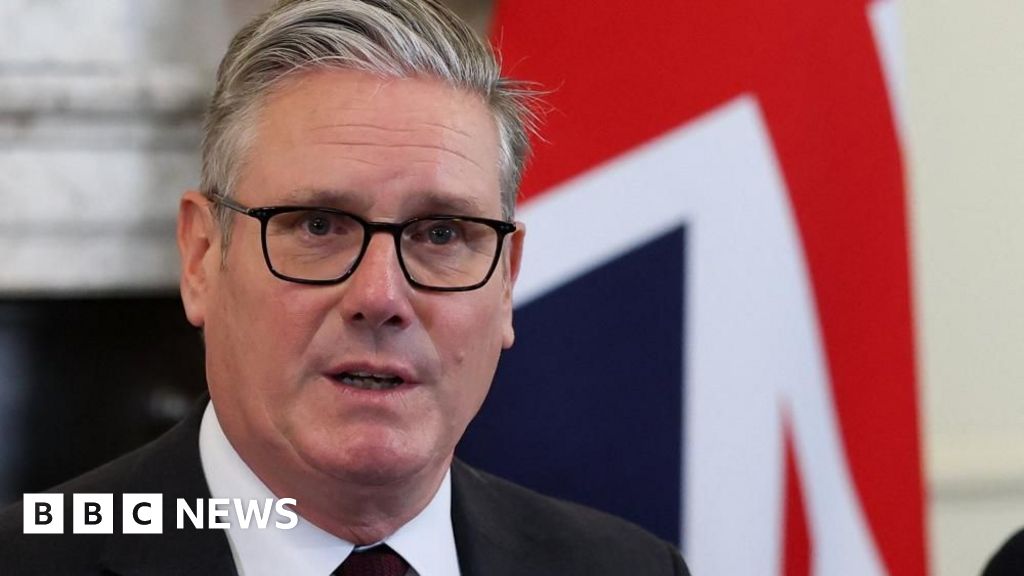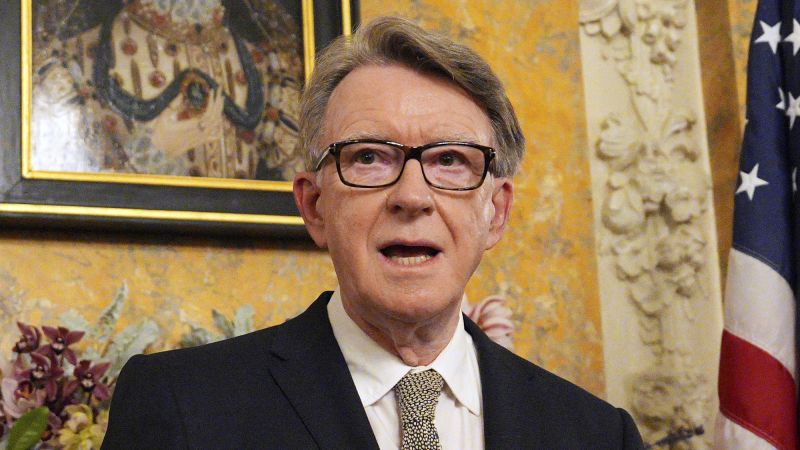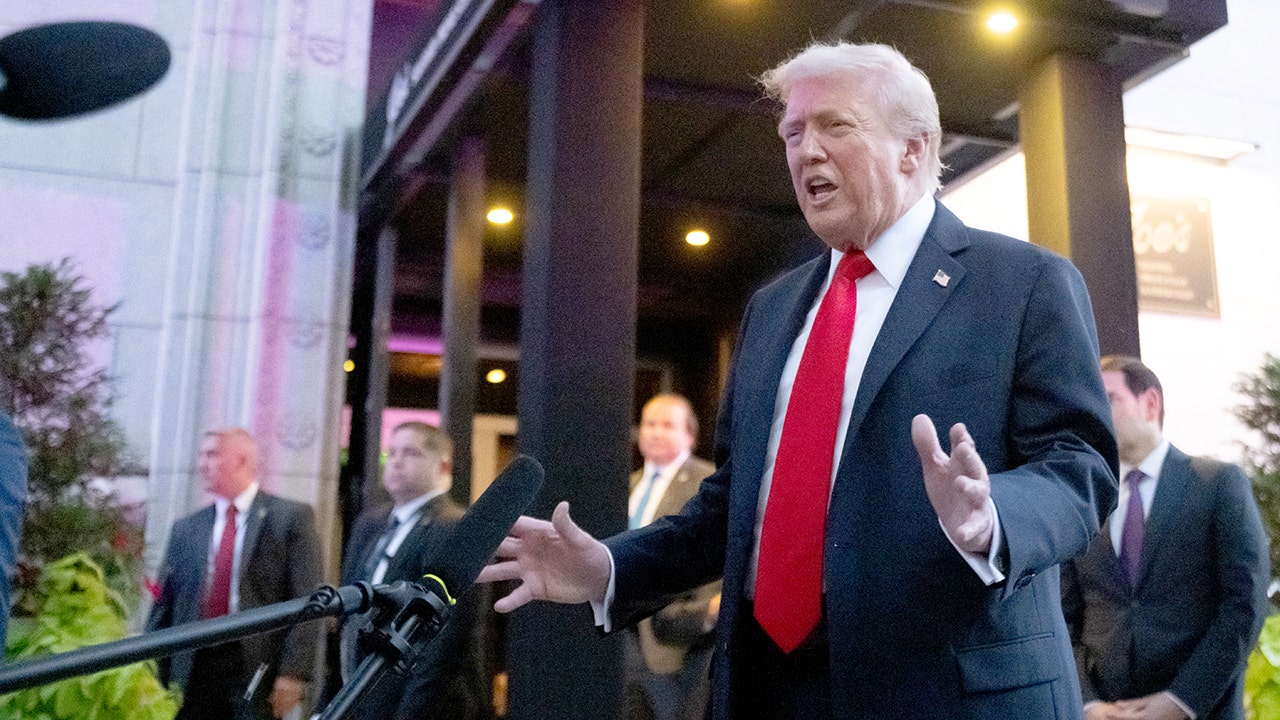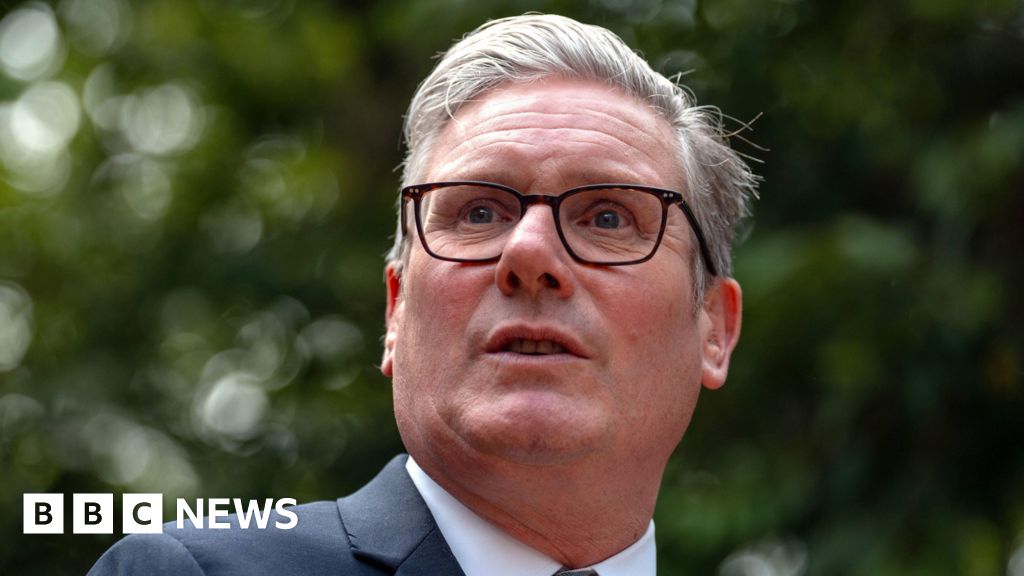British Politics and the Pageantry of President Trump's Visit
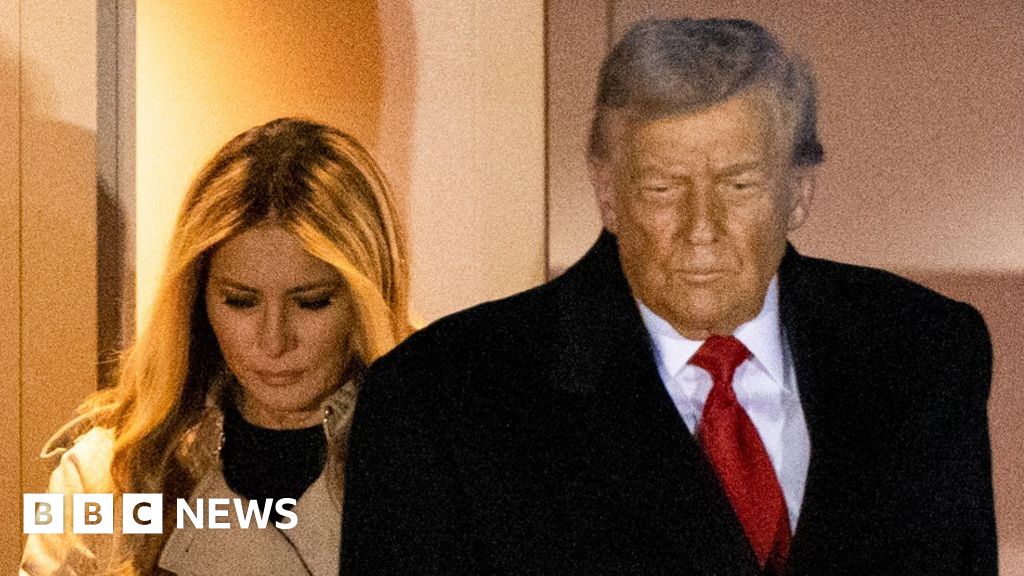
Introduction
The recent visit of President Donald Trump to the UK has put a spotlight on the pageantry and ceremonial aspects of British politics, after a tough fortnight for Prime Minister Theresa May. As reported by BBC's political editor, Chris Mason, the government is likely hoping for a reprieve from the scrutiny and questions surrounding former Labour minister Peter Mandelson.
Key Details
The visit of President Trump was filled with traditional British pageantry, including a state banquet at Buckingham Palace and a military display. This provided a stark contrast to the ongoing political turmoil in the UK, with the resignation of several cabinet ministers and the ongoing Brexit negotiations. The PM is facing criticism from both sides of the political spectrum, making this visit a welcome distraction for the government.
Impact
The focus on pageantry during President Trump's visit has not only provided a temporary diversion from political troubles, but it also showcases the unique and longstanding relationship between the US and UK. Despite the criticism and controversy surrounding the visit, it serves as a reminder of the strong alliance and historical ties between the two nations. This display of pomp and ceremony also highlights the importance of image and perception in political relations.
About the People Mentioned
Donald Trump
Donald John Trump, born June 14, 1946, in Queens, New York, is an American businessman, media personality, and politician. He graduated from the University of Pennsylvania’s Wharton School in 1968 with a degree in economics. In 1971, he took over his family’s real estate business, renaming it the Trump Organization, through which he expanded into building and managing skyscrapers, hotels, casinos, and golf courses. Trump gained widespread fame as the host of the reality TV show *The Apprentice* from 2004 to 2015, which helped establish his public persona as a successful entrepreneur. Trump entered politics as a Republican and was elected the 45th president of the United States, serving from 2017 to 2021. His presidency was marked by significant policy actions including tax cuts, deregulation, the appointment of three Supreme Court justices, renegotiation of trade agreements (notably replacing NAFTA with the USMCA), and a focus on immigration control including border wall expansion. He withdrew the U.S. from international agreements such as the Paris Climate Accord and the Iran nuclear deal, and engaged in a trade war with China. His administration’s response to the COVID-19 pandemic was criticized for downplaying the virus’s severity. Trump was impeached twice by the House of Representatives—first in 2019 for abuse of power and obstruction, and again in 2021 for incitement of insurrection—but was acquitted by the Senate both times. After losing the 2020 election to Joe Biden, Trump challenged the results, culminating in the January 6, 2021, Capitol riot. He remains a central figure in American politics, having won the 2024 presidential election and returned as the 47th president in 2025, continuing to promote policies aimed at economic growth, border security, and military strength[1][2][3][4].
Peter Mandelson
Peter Mandelson, born on October 21, 1953, in London, is a British politician known for his influential role within the Labour Party and the UK government. He served as Member of Parliament for Hartlepool from 1992 to 2004 and held several senior cabinet positions including Secretary of State for Trade and Industry (1998), Secretary of State for Northern Ireland (1999–2001), and Secretary of State for Business, Innovation and Skills (2008–2010). Mandelson was a key architect of the "New Labour" movement alongside Tony Blair, which transformed the Labour Party in the 1990s into an electoral force emphasizing economic and social liberalism. From 2004 to 2008, he served as European Commissioner for Trade, playing a significant role in shaping EU trade policy. In 2008, he was appointed a life peer in the House of Lords, though he has since taken indefinite leave from the chamber. In December 2024, Mandelson was appointed UK Ambassador to the United States, a position he held from February to September 2025 under Prime Minister Keir Starmer. His tenure was notably brief and ended amid controversy linked to his associations with American financier Jeffrey Epstein. Beyond politics, Mandelson co-founded Global Counsel, a global public policy advisory firm. His career reflects notable achievements in government, European trade, and diplomacy, though it has also been marked by contentious episodes. Mandelson remains a prominent figure in British political history for his strategic influence and role in modernizing the Labour Party[1][2][3][4].
Chris Mason
Chris Mason is an English actor born on February 14, 1991, in Edge Hill, Liverpool, England. He is best known for his television roles including Chad Gekko, the husband of Veronica Lodge, in the 2021 season of *Riverdale*, and as Keiran Atreides in the 2024 Max series *Dune: Prophecy*. Mason began his career with notable roles in the miniseries *The Fades* (2011) and *Lightfields* (2013), and his first film appearance was in *Vampire Academy* (2014). In 2017, he had a recurring role as Leo Humphries in the third season of *Broadchurch*[2][6]. Mason has been married to American actress Spencer Locke since 2017, and together they have a daughter named Monroe, born in 2020[2][6]. He continues to work actively in television, contributing to both dramatic and genre series. Separately, another Chris Mason is a Canadian former professional ice hockey goaltender, born April 20, 1976, in Red Deer, Alberta. He played in the NHL primarily for the Nashville Predators, Atlanta Thrashers/Winnipeg Jets, and St. Louis Blues over a career spanning from 1997 to 2015. After leaving the NHL in 2013, he retired with the Augsburger Panther of the German DEL. Since retirement, he has worked as a color commentator for the Nashville Predators on Bally Sports South[1]. Additionally, Chris Mason is a prominent British political correspondent and presenter, currently serving as the BBC Political Editor since 2022. He started his journalism career in 2001, has reported extensively for the BBC, and presented the popular political podcast *Brexitcast*, later renamed *Newscast*. He also chairs the BBC Radio 4 program *Any Questions?* since 2019[9]. Finally, Christopher E. Mason, PhD, is a leading genomics scientist and professor at Weill Cornell Medicine, known for his work in computational biomedicine, genome engineering, and space medicine. He has received numerous prestigious awards and directs several scientific initiatives[10]. The name "Chris Mason" thus refers to multiple notable individuals across acting, sports, journalism, and science.
About the Organizations Mentioned
BBC
## Overview The British Broadcasting Corporation (BBC) is the world’s oldest and largest national broadcaster, serving as a cornerstone of public service media in the United Kingdom and beyond[1][2]. Headquartered in London, the BBC operates under a royal charter and is primarily funded by a television licence fee paid by UK households, ensuring its editorial independence from both government and commercial interests[1][2]. This model allows the BBC to fulfill its mission to “inform, educate, and entertain” with impartiality at its core[3]. ## History and Evolution The BBC was founded on October 18, 1922, as the British Broadcasting Company Ltd., evolving into a public corporation under royal charter on January 1, 1927[1][2]. Its first Director-General, John Reith, established principles of independence and public service that continue to guide the organization. The BBC launched its television service in 1936, pioneering broadcasting technology, and expanded globally with the BBC World Service in 1932, now broadcasting in 28 languages[1][2]. ## Key Achievements The BBC has been a trailblazer in broadcasting, introducing innovations such as regular television broadcasts, color TV, and digital platforms like BBC iPlayer[1][2]. It has earned a reputation for high-quality journalism, producing globally recognized programs in news, drama, and documentary. The BBC’s international arm, BBC Studios, commercializes content worldwide, while the BBC World Service remains a vital source of news in regions with limited press freedom[1]. The corporation has received numerous accolades, including the Queen’s Award for Enterprise for its international business achievements[1]. ## Current Status and Digital Transformation With over 21,000 employees, the BBC remains a dominant force in media, generating £5.4 billion in annual income, mostly from licence fees[2]. It operates multiple TV channels, radio stations, and a robust online presence, including BBC News Online and BBC.com[1




